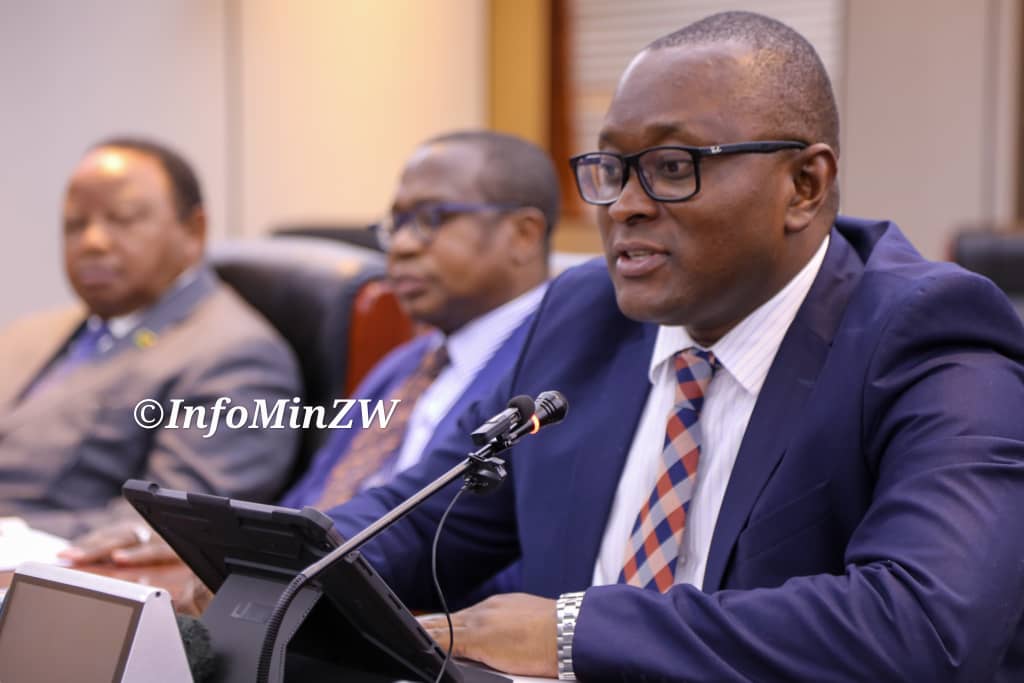Think outside the box-football clubs advised
Share

The best feet in Zimbabwe football teamed up with its finest minds at a glamorous symposium in Harare last week to strategise on ways of increasing revenue from the game, reports New Ziana.
Far from the usual blame-storming sessions where government is always at the receiving end, by the time the Southern Africa Football Business Forum blew its final whistle, all were agreed the game in Zimbabwe was literally like a beggar sitting on a pitcher of gold.
The symposium, convened by the Zimbabwe Football Forum (ZFF) under the auspices of Terrence Malunga and Gerald Sibanda, found that both club and league officials were not doing enough to maximise value from the sport.
Nigel Munyati – a Sports Commissioner and former Black Aces player – pointed out that football could for example monetise their social media accounts.
“We have clubs that have Facebook or X accounts followed by up to hundreds of thousands of followers.
“If each such supporter was called upon to donate a single dollar to the club the figure would amount to about a US$1m each year,” said Munyati.
Dynamos chief executive officer Jonathan Mashingaidze had complained about the percentages levied on clubs from gate-takings where the home team was often left with only 25 percent of the revenue.
Sports, Arts and Recreation Minister Kirsty Coventry admitted that indeed as government they had let football down in terms of infrastructure but emphasised that government did not exist to fund sport but to create a conducive environment for sport to flourish.
Moreover, she added, sport infrastructural development was best carried out by private partners whom football itself was supposed to attract if it was well organised.
The country has this year seen the construction of the Green Fuel Arena in Chisumbanje and Heart Stadium in Waterfalls, preceded by the refurbishment of Bata Stadium in Gweru.
This has reduced the number of clubs without own facilities to a trickle that includes the three biggest teams Dynamos, Caps United and Highlanders whom it was however proved had the means to raise enough funds to construct a stadium apiece.
A director at electrical firm Power Giants that was among the forum sponsors suggested that for instance clubs could tap into the fast-growing energy sector and acquire a licence to provide solar lighting to their supporters, a process his company could partner in.
Ronald Moyo, the chief executive officer of Highlanders, expressed optimism in his club’s commercial activities.
“You have all heard about the gold mine we acquired some time back. We have been going through the regulatory processes and putting together the equipment, now we hope to commence mining soon and we will see where that takes us,” he enthused.
La Liga Africa president Tresor Penku advised smaller clubs to “catch them young” in their endeavour to create a fan base.
“A young club can begin by providing branded stationery to school children and branded cutlery to families in the community. This would ensure the club’s name sticks to children’s memory and engraved in family hearts.”
Lincoln Mutasa, the Zifa Normalisation Committee chairman walked to the podium with a swagger on the back of public approval for his legacy in acquiring properties for Dynamos during his time as club chairman at the turn of independence.
He maintained in his speech that there was nothing preventing current football administrators from emulating his feat as long as they presented viable proposals to local banks.
“Sponsorship must now come as a win-win partnership and not as a donation,” the Zifa boss warned.
The Premier Soccer League came in for some flak from stakeholders for failing to lure meaningful investment into the game.
But Rodwell Thabe, the league’s Marketing and IT manager, said while their biggest asset was television rights there had not been much take-up from local broadcasters.
“I have had to give ZBC free TV rights but still they are not making use of it. Hopefully with new players like NRTV and 3ktv having come on the scene we hope there is going to be competition for this product,” he said.
Thabe refused to divulge the nature of the PSL agreement with ZTN which broadcasts the games on their Facebook channel.
ZiFM sports critic Christine Midzi opined that broadcasting games would attract more spectators to the venue instead of the other way round as was being feared by some football officials.
Her view carried weight with La Liga representatives who said the main reason why the league had omitted Zimbabwe from the list of nine of Africa countries they have a presence in was the fact that football in Zimbabwe was not televised.
A sports science lecturer at the National University of Science and Technology, Precious Majaka, invited clubs to take advantage of NUST programmes that had the capacity of building professionalism in sport.
Spanish deputy Ambassador Diorgo Cataluyut underscored the necessity of sporting diplomacy as a way of growing the game.
“Like Nelson Mandela said sport has the ability to unite people of different races and culture. Seek partnerships with other countries and institutions to widen your scope. Like Spain has done to open up a Real Betis academy here in Zimbabwe, they are extending their support base beyond the borders,” he said.









